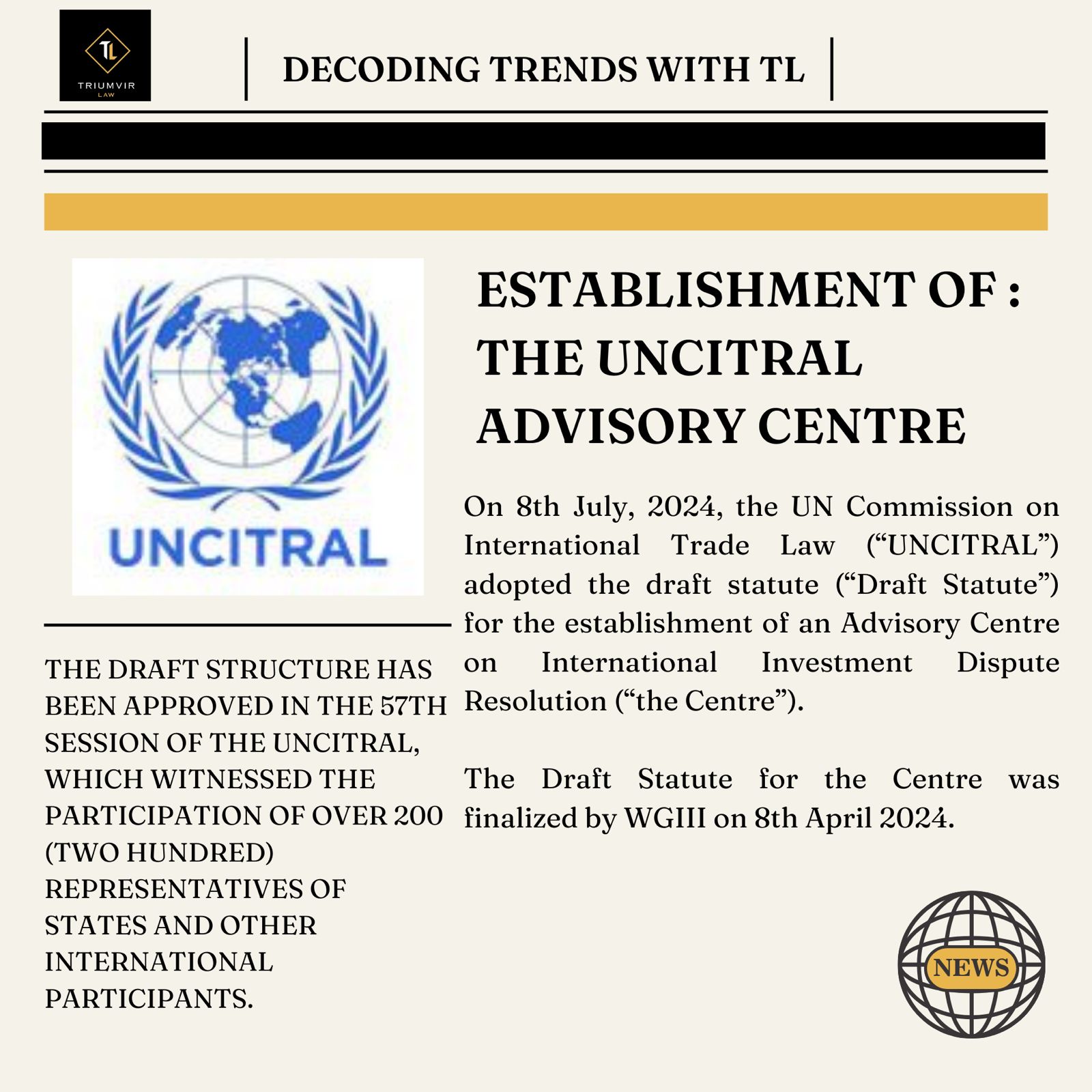
Decoding Trends With Trumvir Law

PRIVATE COMPANIES TO MANDATORILY DEMATERIALIZE ITS SECURITIES
- March 14, 2024
- Decoding Trends With Triumvir Law
- Aakash Parihar & Sanyukta Agarwal
Dematerialization of Shares by Private Companies
On October 27, 2023, the Ministry of Corporate Affairs (“MCA”), vide notification No. GSR 802(E) issued the Companies (Prospectus and Allotment of Securities) Second Amendment Rules, 2023 (“Amendment Rules”), making it obligatory for all private companies, with the exception of small companies and government companies, to convert its shares into dematerialized form by October 1, 2024, by introducing a new rule 9B. It is important to note that while public companies were previously required to maintain and transact its shares in dematerialized form from October 2, 2018, this obligation did not extend to private companies.
By virtue of this, private companies, excluding small companies and government companies, are required to complete the dematerialization process for its securities within 18 months from the closure of the financial year (March 31, 2023), that is, before October 1, 2024. This entails issuing securities exclusively in dematerialized form and ensuring the dematerialization of all existing securities.
Moreover, any private company that is offering new securities, conducting buybacks, issuing bonus shares, or making rights offers, after the date from when it is required to comply with the said rule, must ensure that the securities held by its promoters, directors, and key managerial personnel are dematerialized before initiating such offers.
Additionally, the security holders in a private company who intend to transfer their securities or subscribe to new securities, be it through private placement, bonus shares, or rights offers, on or after the date from when the private company is required to comply with the said rule, must ensure that all their securities are in dematerialized form prior to any such transfer or subscription.
Rules Pertaining to Share Warrants
Further, any public company that issued share warrants before the Companies Act, 2013 came into effect, and has not yet converted them into shares is required to take the following steps:
a) Within 3 months of the commencement of the Amendment Rules, the company must inform the Registrar of Companies about the particulars of these share warrants in Form PAS-7; and
b) Within 6 months of the commencement of the Amendment Rules, the company should instruct the bearers of these share warrants to return the warrants to the company and have the shares dematerialized into their accounts. In addition, as a regulatory practice, the company is obliged to publish a notice for the bearers of these share warrants in Form PAS-8 on the company’s website.
In the event any bearer of a share warrant fails to surrender the share warrant within 6 months from the commencement of the Amendment Rules, then the company is obligated to convert these share warrants into dematerialized form and transfer them to the Investor Education and Protection Fund.
Conclusion and Implications
The compulsory dematerialization of securities for private companies indicates a proactive step taken by the MCA to bring in a transformative shift in India’s corporate governance landscape, by increasing transparency and tightening the regulatory grip around private companies in relation to its securities. From a regulatory standpoint, the mandatory shift towards dematerialization of shares holds the potential to combat money laundering and other unlawful activities. It establishes a robust mechanism for tracking and monitoring share ownership, ultimately encouraging a more secure financial environment for both companies and investors.
RECENT POST
SOCIAL SHARE
Related Post

Budget Takeaways 2024-25
Decoding Trends With Trumvir Law The Budget for FY 2024-2025, presented on July 23, 2024, aims to advance India’s growth

The Transformation of Criminal Law in India: A Comprehensive Overview
Decoding Trends With Trumvir Law India’s legal landscape witnessed a seismic shift on July 1, 2024, with the introduction of

Empowering Arbitration: The Advisory Centre on International Dispute Resolution
Decoding Trends With Trumvir Law I. Introduction On 8th July, 2024, the UN Commission on International Trade Law (“UNCITRAL”) adopted

